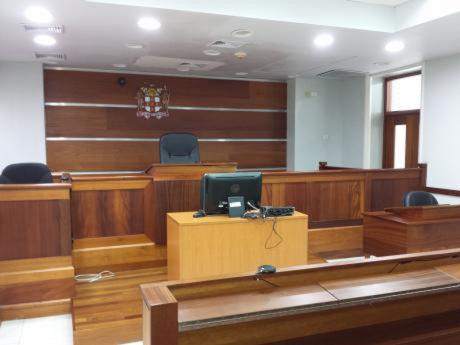Copyright infringement claim brought by JACAP against Manchester cable company struck out
A claim brought by the Jamaica Association of Composers Authors and Publishers Limited against cable company Somane Pesole Communications Limited for alleged copyright infringement has been struck out by the Supreme Court because under the Copyright Act, the court's permission was not sought to bring the claim.
Today, Philmore Scott, one of the attorneys-at-law representing the defendant, described the ruling as a severe legal blow to the efforts of the claimant to collect millions of dollars for alleged unjust enrichment and copyright infringements.
The recent amendment to the Copyright Act could not save the claimant's case, Scott said.
After the claim was filed in the Supreme Court last year, the claimant applied for a default judgment and disclosure of the defendant's financial records from 2018 to 2023.
The defendant, which was also represented by attorney-at-law Camille Scott, instructed by Philmore H. Scott and Associates, applied for summary judgment and for the claim to be struck out.
The defendant asserted that the claimant was abusing the court's process by throwing a “wide net” to “see what they can catch.”
Justice David Batts heard the applications on May 20 and made his ruling last month.
“The defendant is on stronger ground with its assertion that permission to bring the claim ought to have been requested. Section 35(3) of the Copyright Act is clear.
“Where the owner of the work or works is not a party to the claim then permission of the court is required before a claim is filed. The failure to obtain the court's permission, which at this late stage has still not been requested, is therefore also fatal and will result in an order to strike out the claim,” the judge ruled.
The claim was then struck out and the defendant granted judgment and costs against the claimant.
Batts said his decision made it unnecessary to consider the claimant's application for disclosure.
It was the defendant's contention that the Copyright Act of Jamaica as amended permitted actions for infringement of copyright by the owner or an exclusive licensee but there was no evidence that the claimant was an exclusive licensee.
Attorney-at-law Joerio Scott (no relation to the defendant's attorneys), instructed by Samuda & Johnson, submitted that the amended pleadings particularised in detail the works over which copyright was claimed.
Batts said “on the issue of exclusivity of the license I agree with the claimant that the minute examination of the deeds, documents, and the powers of attorney, which the defendant's submissions invite, is inappropriate for a court considering summary judgment. On the face of the plea, and the documents relied on, the claimant has satisfied me that it has a real prospect of successfully establishing locus standi to bring this suit.”
However, the judge held that the defendant was on stronger ground that permission should have been given by the court to bring the claim.
The claimant had also argued that a default judgment should be entered because the claim form and particulars had been properly served by one Mark Hynes.
The affidavit of service by Hynes stated that he handed the documents “to Kim Dunn, a secretary and the person in charge.”
Hynes further stated in an affidavit in May that to his certain knowledge and information obtained, the location where he served the documents is the only location in Newport District where the defendant “operates, does business or is located.”
The defendant, in acknowledgment of service, had stated that a package was left sometime in August 2023 at a secondary location of the company.
It was also stated in an affidavit filed by Peter Dunn, a director of the defendant, that the company has two offices in Newport, Manchester.
One location houses its headquarters, its registered office where the directors and managers oversee the operations of the company and the only location authorised to accept official documents on behalf of the company.
It also stated that the other location was where customers filled out applications and made payments to the company.
The judge, in refusing to grant a default judgment, said the evidence did not satisfy him that the service was made at the registered office of the defendant.
The judge found that once the claim came to the attention of the officers of the defendant, it immediately instructed attorneys, filed a defence to strike out the claim or for summary judgment to be entered.
The claimant had sought the disclosure of audited records for 2018 to 2023 and/or its subscriber television quarterly report for that period.
The judge said such orders for disclosure would only become necessary if the defendant's application for summary judgment or striking out failed.
Batts ruled that the claimant had not put forward evidence to support any particular breach of copyright.
“An application for summary judgment must be responded to by evidence. It is the evidence to which the court has regard when deciding if a claim has a real prospect of success. In this regard, the absence of evidence that the defendant played any of the pleaded works on any particular day or, any particular occasion between 2018 and now, renders the claim one which has no real prospect of success,” the judge ruled.
The defendant is a cable company which operates out of Manchester and provides cable services to the central section of the island.
- Barbara Gayle
Follow The Gleaner on X, formerly Twitter, and Instagram @JamaicaGleaner and on Facebook @GleanerJamaica. You can email us at onlinefeedback@gleanerjm.com or editors@gleanerjm.com.

